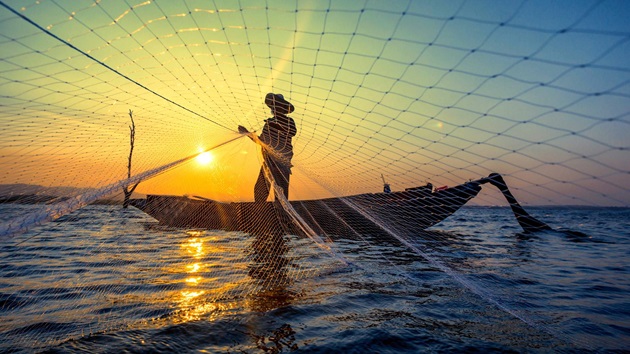
The MSC announces its latest grant funding for innovative research and fishery improvements that will better protect the ocean and support sustainable fishing.
Nearly $1 million in grants has been awarded by the MSC to fund important research into areas such as bycatch reduction and to support improvement in fisheries management worldwide.
Now in its fourth year, the Ocean Stewardship Fund has awarded grants totalling US$ 934,430 (£756,568) to fisheries, scientists, NGOs and students. The MSC recently announced a goal of raising US$100 million in the next decade to address significant pressures faced by the ocean.
A total of 26 initiatives in 15 countries have been selected for funding by the MSC.
Amid global concerns about the depletion of ocean biodiversity, this year’s grants have a special focus on research into reducing bycatch, including projects in Australia, Greenland, Ecuador and Papua New Guinea.
One project will help loggerhead sea turtles in the waters around the Indian Ocean island of Réunion. Locals fishing swordfish and tuna have been working with the island’s veterinary rehabilitation centre to protect these turtles. To date, they have rescued more than 400 turtles accidentally injured by fishing.
To improve the turtles’ chances of survival, new funding from the MSC’s Ocean Stewardship Fund will expand training to fishers across the island. They will learn to safely handle turtles using a net spinner specially designed to return them to the water safely.

This year’s awards continue to support projects that use new technology or innovations, such as Alaskan salmon fishers who will use a new app to record real time information on seabird interactions from remote locations.
One grant will support a project in the Greenland lumpfish fishery that is investigating whether modifying gillnets with LED lights can successfully deter seabirds.
"[Our research] represents a crucial step towards reducing the negative impact of bycatch… We have the potential to reduce unnecessary bycatch and ensure the sustainability of the fishery for years to come.”
- Dr
Søren Post, Greenland Institute of Natural Resources
The Ocean Stewardship Fund also provides grants to help early-career scientists to contribute to sustainability efforts. Cretus Joseph Mtonga, a PhD Student at the Leibniz Centre for Tropical Marine Research in Germany, will carry out genetic tests on more than 100 octopus samples to discover if more than one species is present in the waters off Southwest Madagascar.
Some grants support fisheries in making the improvements needed to meet the MSC Fisheries Standard and almost 40% of grants to date have been awarded to projects in emerging economies. Working with the NGO Pronatura Noroeste, fishers in Baja California, Mexico, have made significant efforts to improve the management of sea urchin stocks. These include reforestation of kelp beds to support the rebuilding of sea urchin banks. Kelp is essential to the ocean’s health and provides an important source of food for sea urchins.
The Ocean Stewardship Fund redirects 5% of annual royalties from the sales of MSC labelled seafood alongside third party philanthropic donations to accelerate the sustainability of fisheries globally.
Addressing the pressures on the ocean requires close collaboration between industry professionals and scientists.
Since the Ocean Stewardship Fund was established, it has issued over 100 grants totalling US$4.9 million (approximately £3.9 million) to deliver lasting change. These grants have supported a wide range of projects that aim to improve the health of stocks, manage harvesting levels carefully and protect the marine environment, for example by identifying and mapping seabed habitats.
Rupert Howes, Chief Executive of the MSC, said:"My heartfelt congratulations to all the 2023 Ocean Stewardship Fund awardees. As our global population grows, the ocean will be increasingly important for communities that depend on it both for jobs and as a source of nutritious, healthy aquatic foods. The Ocean Stewardship Fund is helping to drive the innovation and progress needed, to harness the potential of our ocean.”


